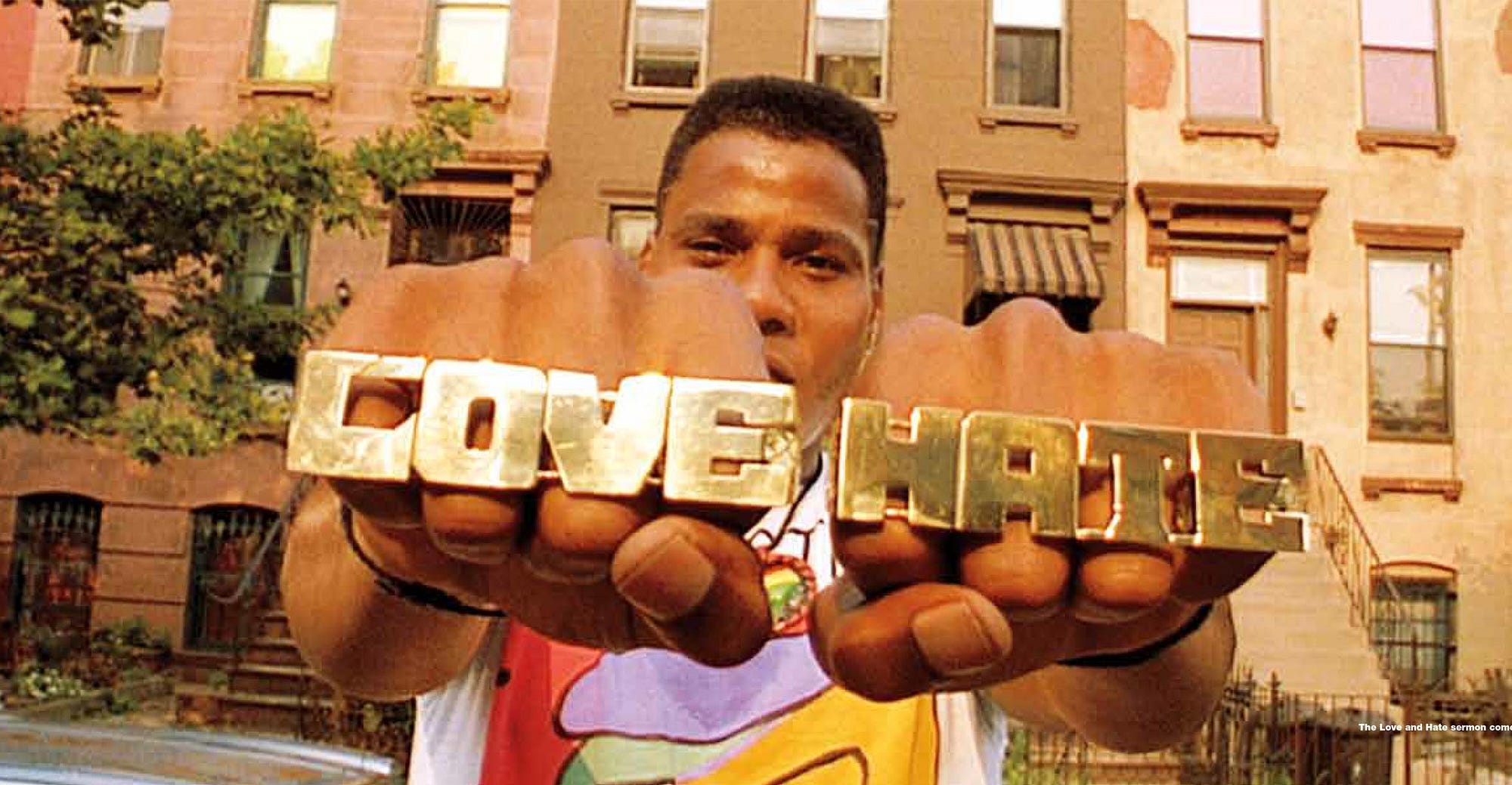Those examples I gave are not only created by black people, they are focused on black issues. Moonlight focuses on the trials of a young black gay man in the South, Selma on the 1965 civil rights marches, 12 Years a Slave on a man kidnapped into slavery, Dear White People on racial tensions at an Ivy League school, Fruitvale Station on a police shooting of a young black man, with Straight Outta Compton following the gangsta rap group N.W.A. (an abbreviation for Niggaz Wit Attitudes). These successes are not cherry-picked. Less successful movies, like Nate Parker's Birth of a Nation and Nick Cannon's King of the Dancehall, are also being produced.
The most recent example of what I might crudely call this 'black new wave' is Sorry to Bother You, which I wrote about recently. It has prompted many to call it 2018's Get Out, perhaps the most successful film of this new wave. Like Get Out, Sorry to Bother You starts out mildly, following a down-on-his luck telemarketer whose luck changes when he gets a tip: "use your 'white voice'." The film then spirals into the surreal, peeling back the socially conscious layers of Boots Riley's smart script. He denudes the fundamental malevolence of racism as sharply as Get Out did.
Film is like all other arts in that its current state and the style of current works can always be traced back from the lineage of the art form. Movements such as this do not arise out of nowhere. I would suggest that the most recognizable origin of this 'black new wave' is Spike Lee's 1989 movie Do the Right Thing. It is a 'plotless' movie, meaning it spends more of its time developing a mood than a plot. Spike Lee plays the main character Mookie, among an array of neighborhood characters who shape the vibe of the film. He plays a pizza deliverer at an Italian-owned pizza place in a predominantly black neighborhood in Brooklyn. As a director, he shines. His movie is bold and loud and bursting with energy. It is hilarious, too, and necessarily so given the high racial tensions throughout. The movie is best in dialogues where characters jab or spar at each other, where New York City's cultures clash, and where Lee pokes at New York's social fabric through comedy.
The heat of New York's summer is a character in itself in the movie. Fans are on high, everyone covered in a thin film of sweat reminds us of it, and newspaper headlines are written about it. That heat is nothing compared to the simmering racial tensions in Brooklyn. The Italians have problems with the Blacks who have problems with the Koreans who have problems with the Jews. Tension between all of these groups and the police is palpable, as well. At one point the neighborhood kids, all black, are playing with an open fire hydrant. As a joke they spray water on a white man, who angrily pleads with the police. They ask the black neighborhood drunk what happened, replying with a rhyme equivalent to, “I don’t talk to the police.” Such an attitude seems earned given the riotous, chaotic, and heartbreaking climax of the movie, eerily foreboding the race riots in Los Angeles that would come three years later.
Do the Right Thing (1989)
Spoilers for Do The Right Thing ahead. The most memorable scene of the movie, for me, was Radio Raheem's speech about love and hate. That's what's shown above. (Raheem also always has his boombox, playing loud.) Raheem just bought new brass knuckles; the one on the right says "love," and the one on the left says "hate." Lee places Raheem front and center in frame, shifting away from the more naturalistic style of the rest of the movie, telling his audience that this scene is crucial. Raheem tells Mookie, "The story of life is this, static. One hand is always fighting the other." Immediately after his speech Raheem walks to the pizzeria and orders pizza, but the pizza owner tells Raheem to turn the music down. This is Raheem's entire identity being confronted, and the owner points out specifically that he is playing rap music in an Italian place. Tensions rise so high that a brawl seemed brewing.
This is the dichotomy of Do the Right Thing: black and white, love and hate... How can we all blend together in harmony if the relationship between love and hate is an endless fistfight? Later in the film Raheem is murdered by police officers, motivated by hate, inciting the neighborhood, motivated by hate, to destroy the pizzeria. Hate is an easier option sometimes, especially for those oppressed, but love must shine through. This 'black new wave' has our attention, and as it continues to raise social issues I hope it, like Spike Lee, reminds us that love is part of the answer.
This is the dichotomy of Do the Right Thing: black and white, love and hate... How can we all blend together in harmony if the relationship between love and hate is an endless fistfight? Later in the film Raheem is murdered by police officers, motivated by hate, inciting the neighborhood, motivated by hate, to destroy the pizzeria. Hate is an easier option sometimes, especially for those oppressed, but love must shine through. This 'black new wave' has our attention, and as it continues to raise social issues I hope it, like Spike Lee, reminds us that love is part of the answer.



